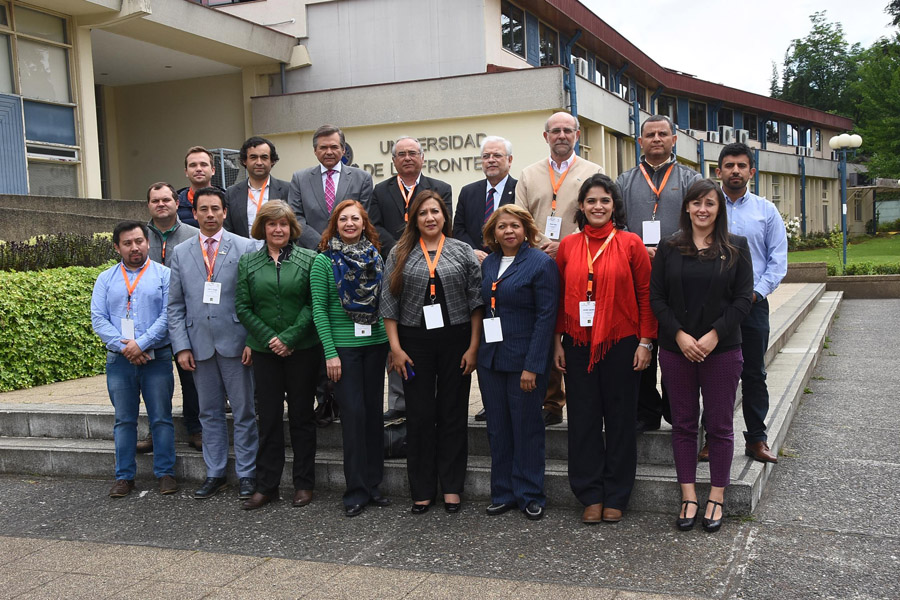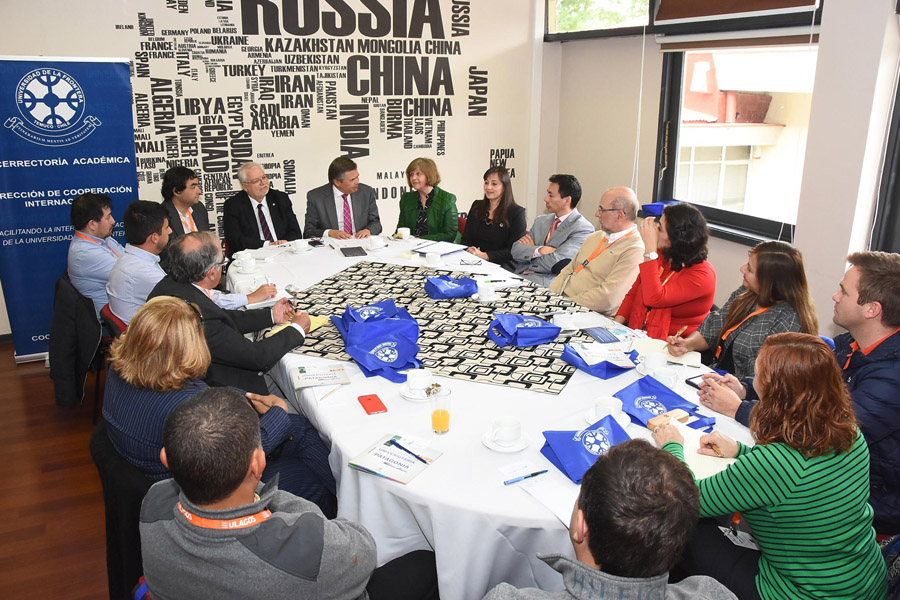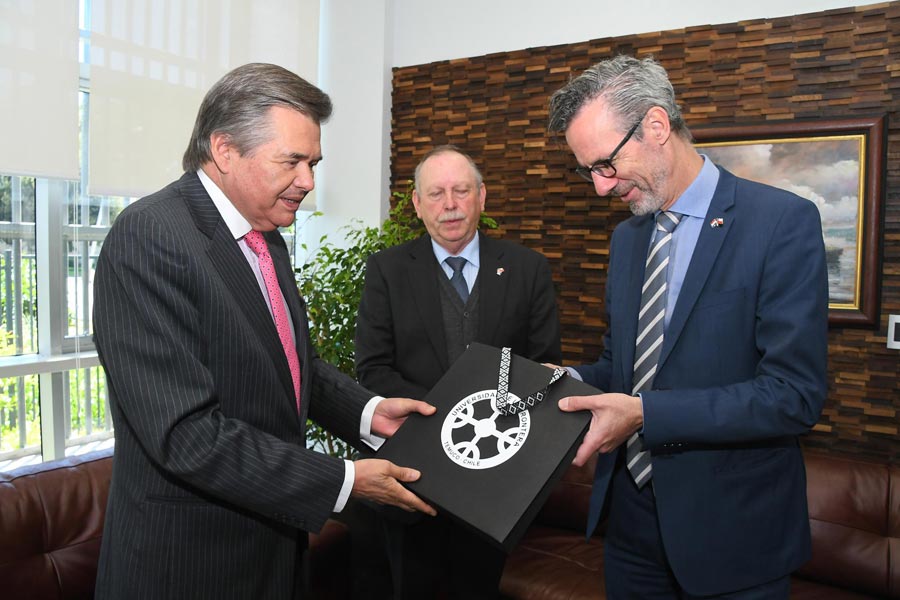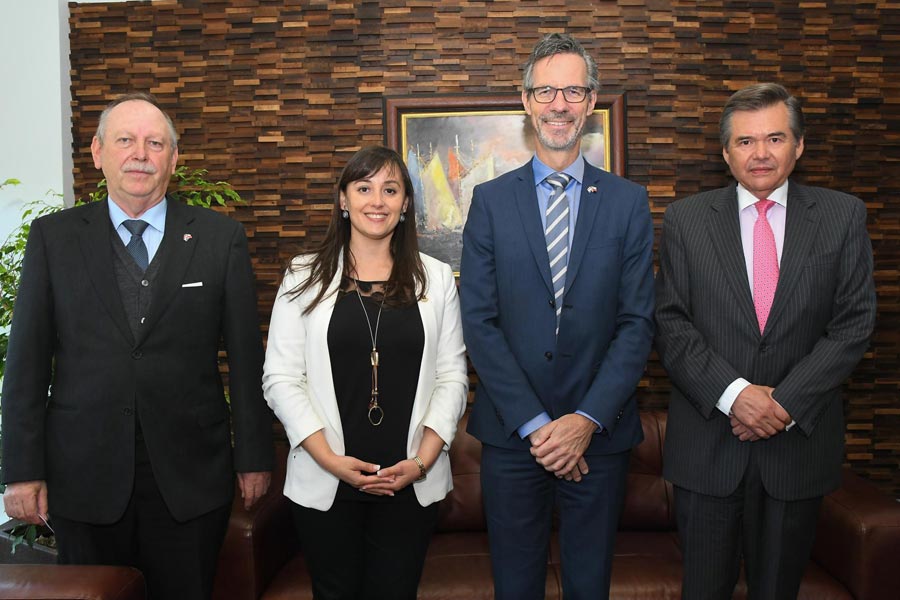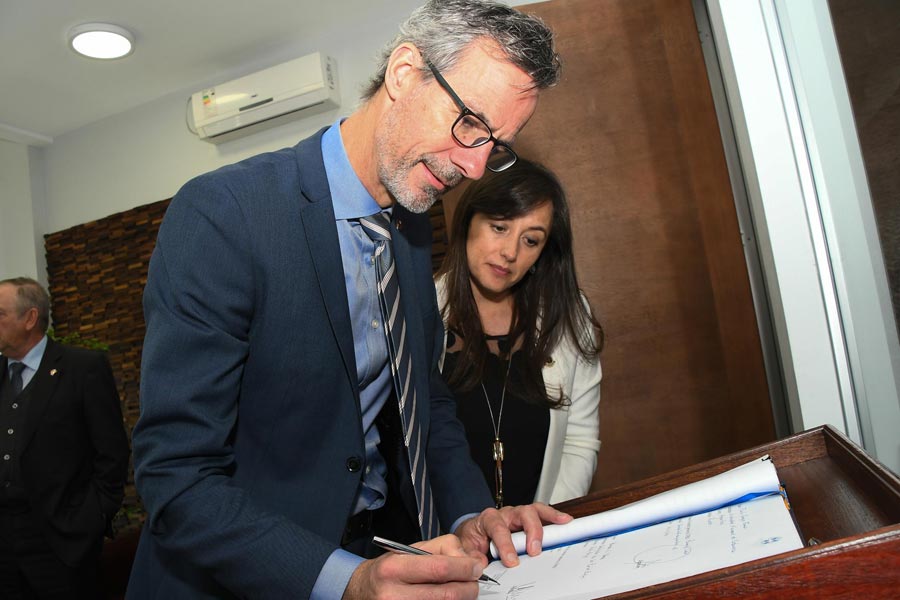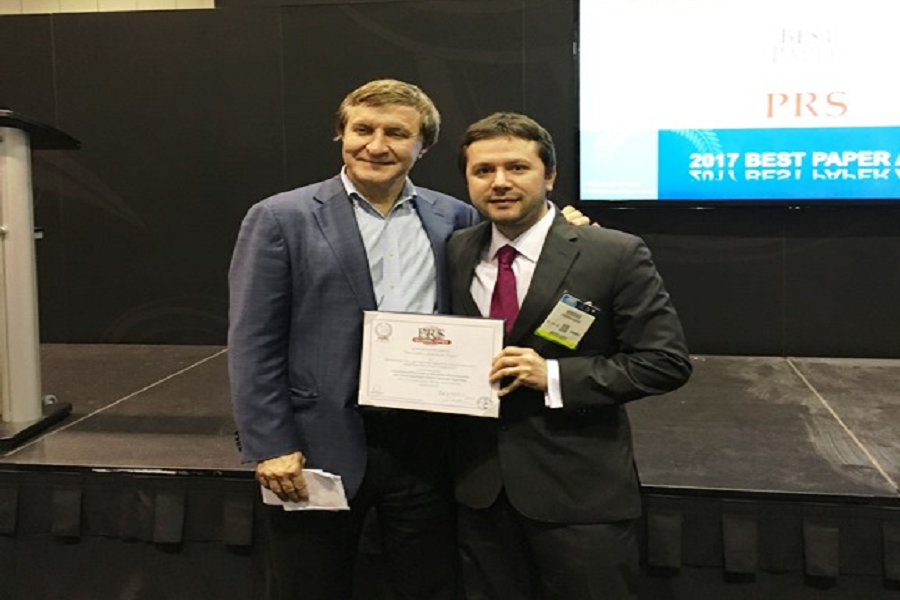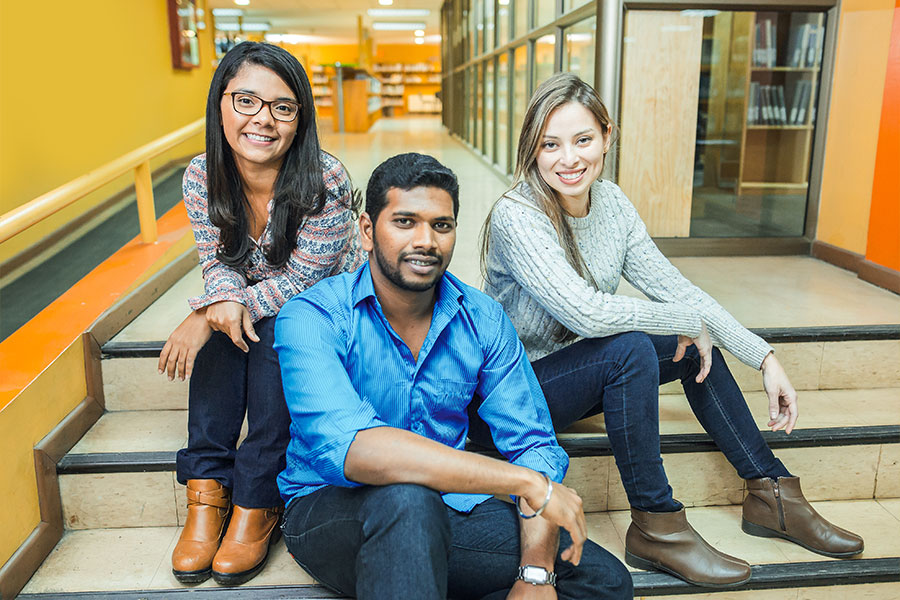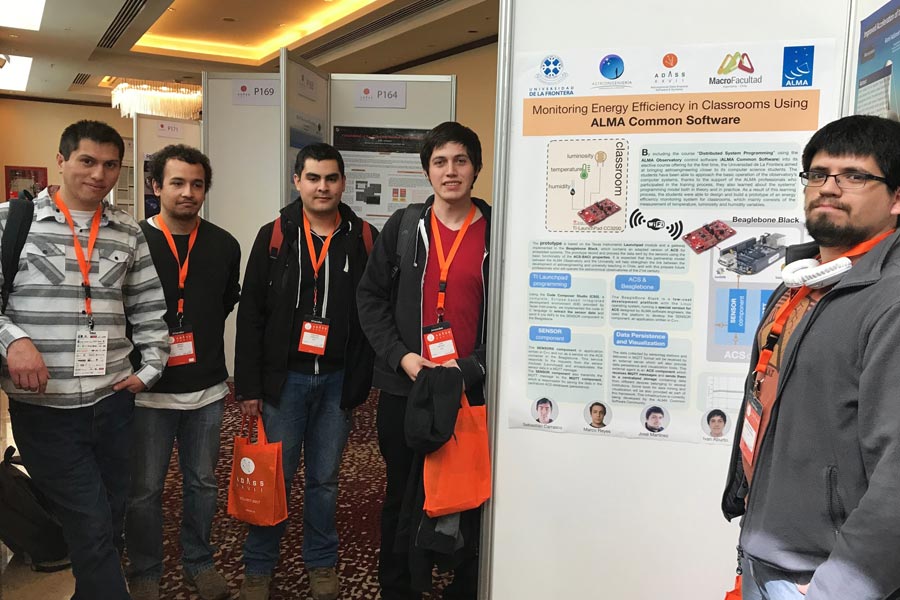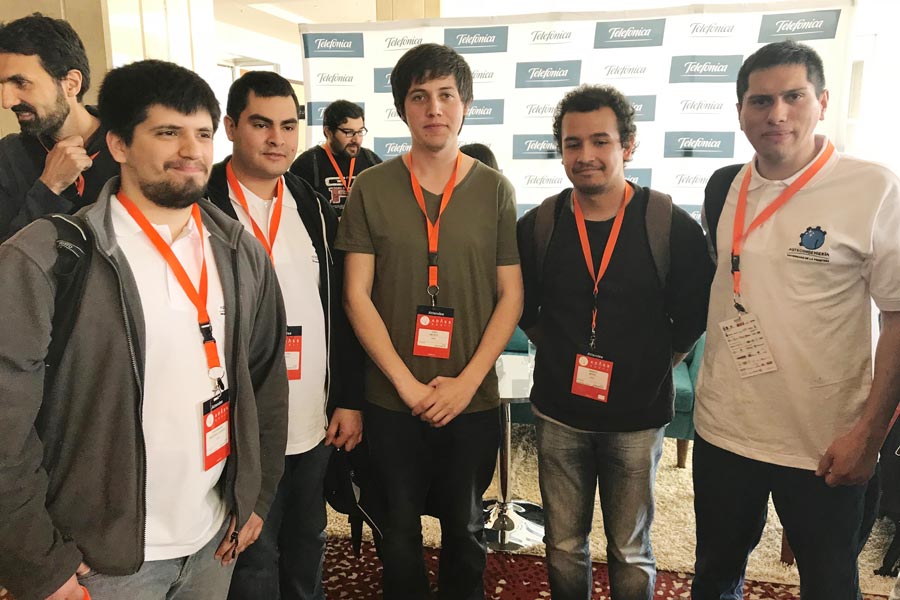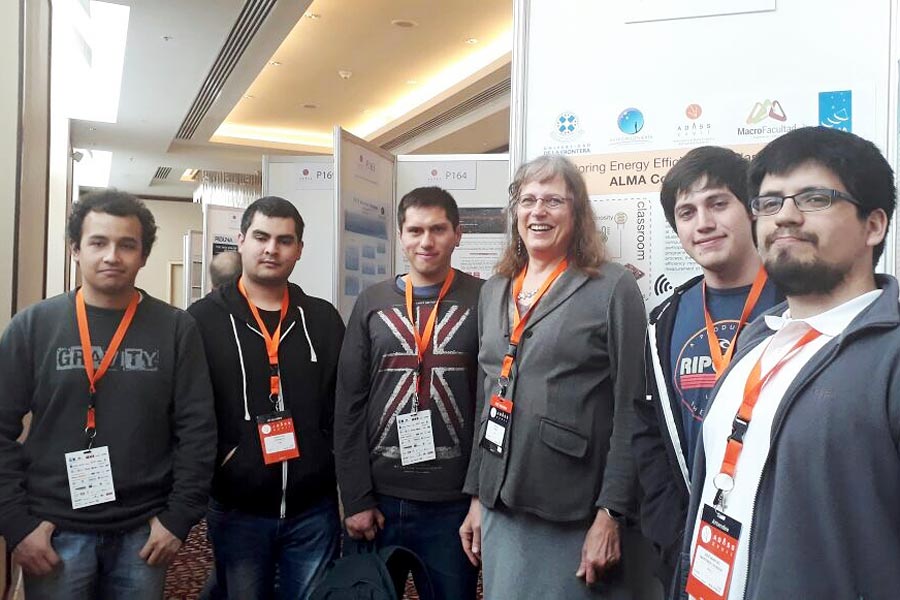|
IGLU is a program for authorities, executives and academic staff of higher education institutions, to perfect their skills in university management and leadership and, at the same time, to generate instances of mutual cooperation. |
High Authorities and scholars of different Latin American Universities from Costa Rica, the Dominican Republic, Mexico, Brazil and Argentina visited the Universidad de La Frontera within the Institute for University Management and Leadership (IGLU) Program, which is organized by the Inter-American Organization for Higher Education (IOHE). On this occasion, the Los Lagos University was the headquarter and host of a series of management and leadership activities that have been developed within the IGLU Program, which includes classes and on site experiences at institutions with good practice. The IGLU Program is one of four development programs (CAMPUS, COLAM, EMULIES) the IOHE offers. UNIVERSITY MANAGEMENT AND LEADERSHIP The IGLU Program is offered by the Institute for University Management and Leadership, which is distributed in Regional Centers of the Americas. One of those Centers is at the Los Lagos University, which chose the UFRO in order to show the work of a public, regional and state university with good practice and auspicious projections. In this context, the rector, Sergio Bravo, pointed out that “the Los Lagos University thought of this institution as an example for an important delegation with people from universities who have come to get to know the implementation of different programs, having in mind that we work corresponding to the Chilean education policies, which can be quite different compared to other countries.” According to Dr. Julio Crespo, the director of International Relations of the Los Lagos University, the visit at the UFRO meets the objective of observing the work of universities, with regard to leadership and academic development. “This is why university executives and managers participate in this program: to obtain new experiences, make synergies with universities, and to strengthen their own institutions through an innovation project.” Some of them have similar cultures, we have cooperation agreements with some of them and with others not. This is why the rector, Sergio Bravo, said that there is no doubt that this encounter supports our work of internationalization, and the experiences we presented address the management of research, the creation and development of the scientific nuclei, the fields of technology transfer and innovation, and the connection with graduates. UFRO EXPERIENCE At present, the Osorno Campus and the International Affairs Office of the Los Lagos University have been receiving participants since 2016 and are the headquarter in the south of Chile this year. Against this background, the Universidad de La Frontera enabled them to get to know other university realities and educational contexts. Dr. Leal added that the main interest was to get to know the work in the areas of innovation and technology transfer, monitoring of graduates and scientific and technology nuclei. “There is no doubt that this experience will provide new tools that can be used in each of the institutions.”
Written by: Dirección de Comunicaciones
|
|
As part of his tour of Chile, the Dutch ambassador, Harman Idema, visited the UFRO together with the consul, Germán Nicklas, to meet with the rector, Sergio Bravo, and to get to know the work of this public and state university. |
The Dutch ambassador, Harman Idema, and the consul, Germán Nicklas, met with the rector of the Universidad de La Frontera, Sergio Bravo, and the director of the International Affairs Office, Dr. Pamela Leal, for one of the first meetings of rapprochement between the university authorities and the diplomatic representatives, who are starting their first period of office in Chile. The ambassador, Harman Idema, took office four months ago and one of his first actions is a tour of Chile, to meet with different counterparts in order to start and maintain cooperations and close relations with the different regions of Chile. “The main objective of my visit is to get to know the honorary consul, Germán Nicklas, since I came to this country only four months ago and it is important to me to know what is happening in this region with regards to business, politics and social issues”, he said. This is why the diplomats organized meetings at the Regional Government and the Diocese of Temuco. The Universidad de La Frontera is the only higher education institution they visited to see the development and the regional expectations. COOPERATION The ambassador also appreciated the cooperation agreements the UFRO has with two Dutch higher education institutions in the areas of teaching and research. “For us, making use of our link with two Dutch institutions – especially two agreements, with the University of Groningen and Maastricht University, initiated in 2015 and 2016 – helps us to move forward with the consolidation of institutional relations, in the aspects of collaboration and academic mobility”, explained the director of the International Affairs Office, Pamela Leal. The ambassador, Harman Idema, also commented that one of the purposes of his visit is to be present at the inauguration of a new Dutch enterprise for sustainable salmon production that will open in Catripulli.
Written by: Dirección de Comunicaciones
|
|
Dr. Fariña is an academic member of the Universidad de Chile, Dr. Arriagada is a maxillofacial Surgeon at Linares Hospital and the doctors Alister, Uribe and Olate are part of the academic body of the Oral and Maxillofacial Surgery Unit of the Faculty of Dentistry of the Universidad de La Frontera. |
The work “Indications of free grafts in mandibular reconstruction, after removing benign tumors: treatment algorithm” by Rodrigo Fariña, Juan Pablo Alister, Francisca Uribe, Sergio Olate and Álvaro Arriagada received an important acknowledgement by the prestigious Plastic and Reconstructive Sugery Global Open Journal, which awarded the article as “Best Latin American Paper” in 2006, published in this journal.
 Written by: Soledad Millapán Written by: Soledad MillapánFaculty of Dentistry |
|
UFRO prepares XII. Postgraduate Summer School |
The XII. Postgraduate Summer School is organized by the Vice-rectorate of Research and Postgraduate Programs, in cooperation with the Academic Direction of Postgraduate Programs, and will take place between January 2nd and 26th, 2018. This is an open call for postgraduate students, researchers and professionals who want to participate in this opportunity to perfection their skills. REQUIREMENTS FEES AVAILABLE SCHOLARSHIPS For more information, please contact us (Phone: +56-45-2744250, Email: This email address is being protected from spambots. You need JavaScript enabled to view it.).
|
|
For the first time, Chile hosted the Astronomical Data Analysis Software & Systems (ADASS) Conference in Santiago, where representatives of 34 different countries came together, among them an UFRO delegation. |
A delegation of UFRO students and scholars of the Faculty of Engineering participated in the most important astroinformatics conference worldwide, which, for the first time in its 27 years of existence, took place in Chile and Latin America. ADASS
 Written by: Mauricio Antivil Written by: Mauricio AntivilEngineering Project 2030 |





